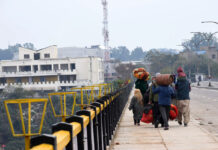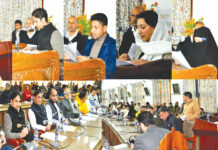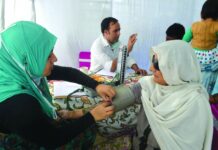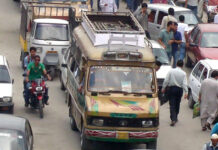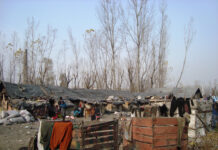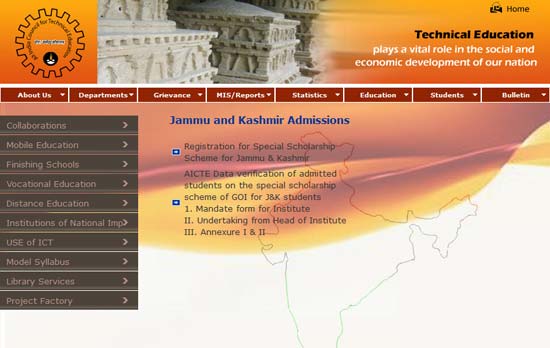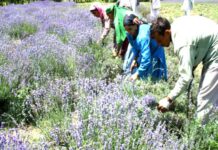Free movement of people in streets of Kashmir has now become a luxury, as curfews become a norm. Funerals are no exception. Wasim Khalid reports.
Haris Khan is unable to overcome the trauma he underwent on the night of September 17. Khan’s grandmother, Amina Bano died in the evening on September 17 after a prolonged illness.
However, the family was forced to bury the body next afternoon.
Reason- the troopers, imposing round the clock curfew, demanded curfew passes for the dead and mourners to move towards the graveyard.
“It was a horrendous experience,” Khan said. “It was the night of agony, of pain”.
Kashmir has become a unique place on the earth. Here even dead need the curfew pass, for burial. And people need official permission to mourn.The troopers imposing strictest curfew clamped ever in last 20 years, do not allow burial of people, who die of natural death, without proper official permission.
“That night we attempted to leave the home with a coffin,” Khan, who lives in Barzulla area of Srinagar, said. “But the troops imposing curfew did not allow us. They demanded official permission to move”.
As a result, Khan said they had to return. “We kept the shroud covered body in a room,” he said. “Due to curfew, relatives and friends could not come. Those were really painful moments. The terrified night appeared to us getting longer. We gnawed our nails and waited for the morning”.
In the morning, the family members were confused whom to approach for the curfew passes. “They did not allow people to venture out,” Khan said.
“Then we called friends, relatives and other people who could help. At last we found the number of concerned police station. We called them. And they arranged few curfew passes for the funeral.”
It means only close family would be attending the funeral, there would be no friends and relatives attending the ceremony. The curfew passes do not solve the whole problem for the grief-stricken families.
 Showkat Ahmad Mir 33, a resident of Srinagar’s Lal Bazaar area, died in the evening of July 2 due to illness.
Showkat Ahmad Mir 33, a resident of Srinagar’s Lal Bazaar area, died in the evening of July 2 due to illness.
Muneer Pandith, cousin of deceased said it was even difficult for them to arrange the person who would stitch the shroud. “The curfew was so strict that nobody was allowed to even open their doors,” Pandith said. “So how do you expect even the tailor to arrive?
Even the relatives and neighbours could not come to sympathize.”
Like Amina Bano, the family of Mir also attempted to perform last rites in the evening, but they also had to return.
The body had to be kept for the night at home as they failed to get permission to bury the body. Pandith said it was a stifling experience for the family to secure curfew passes.
“It was a close family friend who talked to police. Later the official permission was given to few people who would accompany the coffin,” he said.
The journey to the ancestral graveyard, Malkhah, in downtown Srinagar was in itself a challenge.
“It was really suffocating. The troopers stopped us at many places,” Pandith said. “They also screened the coffin”. Besides, he said the police and paramilitary CRPF also questioned the mourners.
“We were stopped near Nowshera by CRPF and police,” Pandith said.
“Later we were released after a close relative of us called the concerned Hazratbal police station. We were escorted by two policemen to Malkha”.
However, the problem arose for the family when they were unable to arrange a grave digger.
“There was no grave digger,” he said. “He lives in Kanitaar Sadrabal.
He refused to come. It was also impossible for him to come, given the strict curfew”.
After repeated insistence on phone, the grave digger finally agreed.
”He told me that he negotiated the maze of old city streets,” Pandith said. “All the way he made sure, he would avoid the prying eyes of troops”. The body was later buried around 3pm and it took more than two hours to cover 25-minute walk to the graveyard.
The curfew also imposed problem for families whose relatives expired in hospitals and could not make it to home for days together.
On July 10 Saturday, Shameema’s newborn son passed away in Lal Ded hospital.
However, nor she and neither his dead baby was allowed to go home to Dangerpora in north Kashmir’s Sopore area. Brother of Shameema, Abdul Majid Dar pleaded help from hospital. But the hospital authorities refrained from providing even an ambulance.
The police were not allowing even ambulances to ply on roads.
It was after two days that she was able to go home after authorities granted her special permission.
Initially, it was difficult to live with such changes. Now people are getting “used to” the situation by adapting to “curfews culture”.
Kashmir is a closely knit society. The human relations supersede every sphere of life. When somebody dies, it’s incumbent that his relatives, friends and family members attend the funeral, besides, commiserating with the bereaved.
But the large funeral prayers are now squeezing. The curfew has even changed the age old rituals in Kashmir.
Whenever, there is relaxation in restrictions, the mourners rush to the home of bereaved family- just to hold in-absentia funeral prayers. Many people now point out that like them even the “dead are not safe in Kashmir”.


